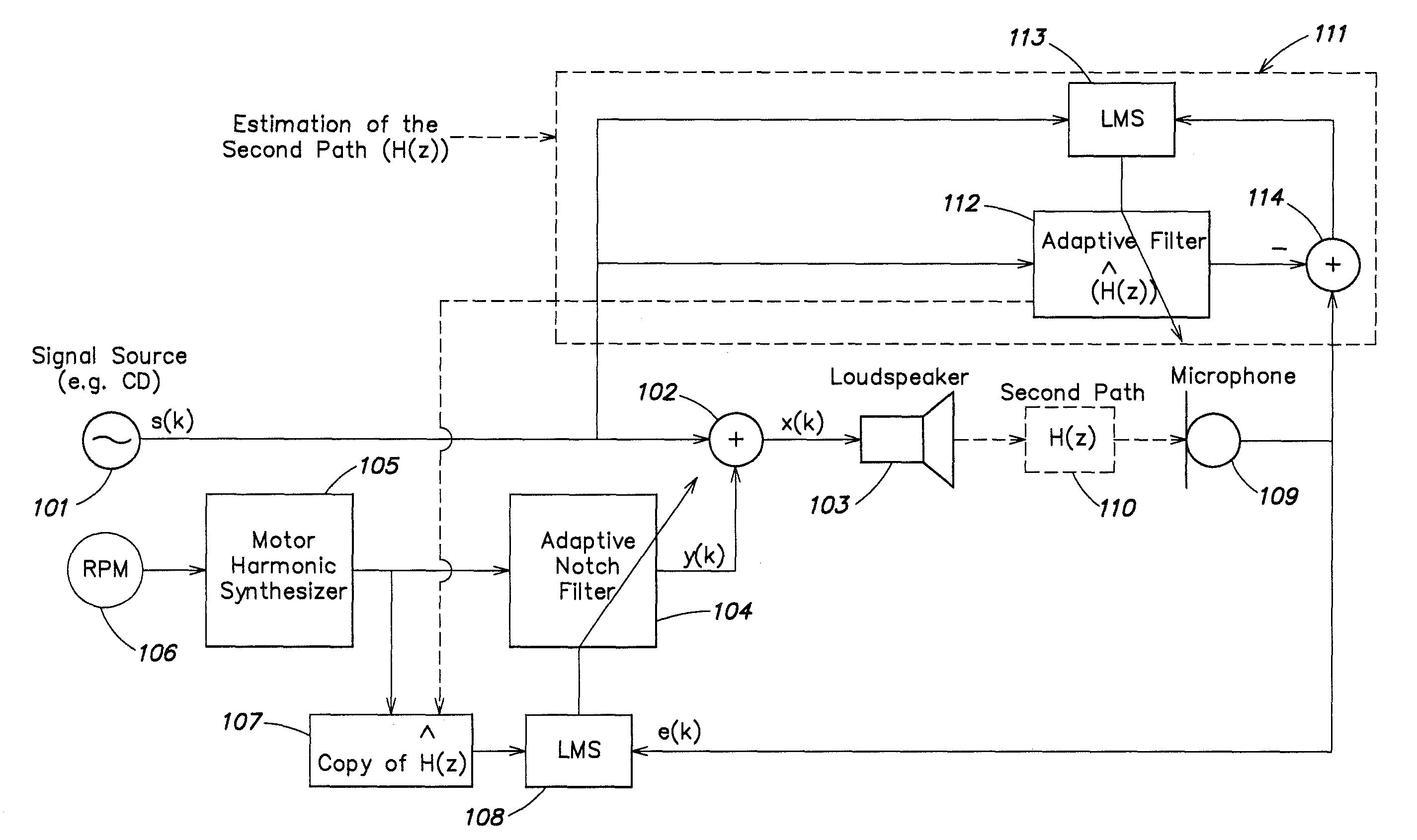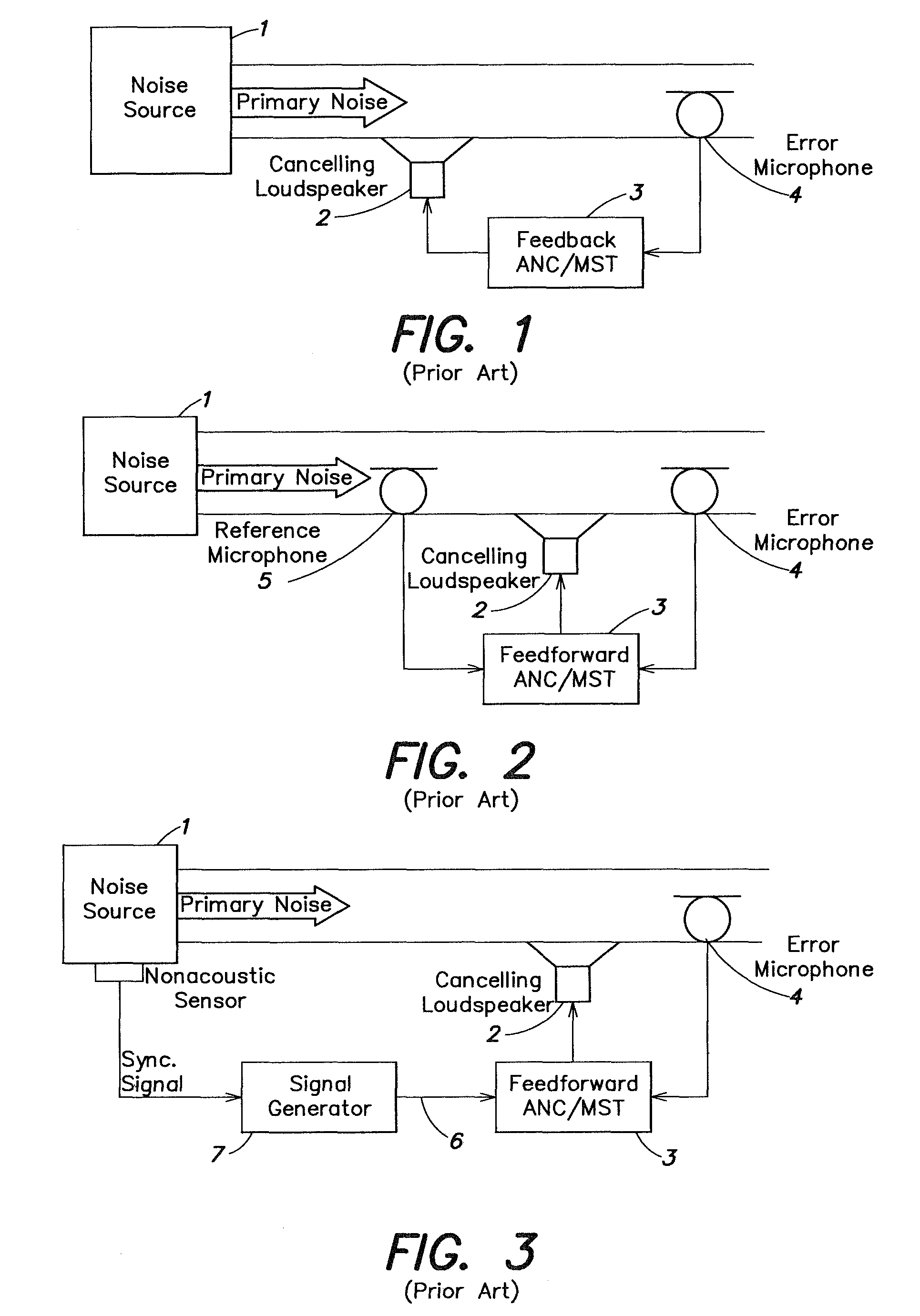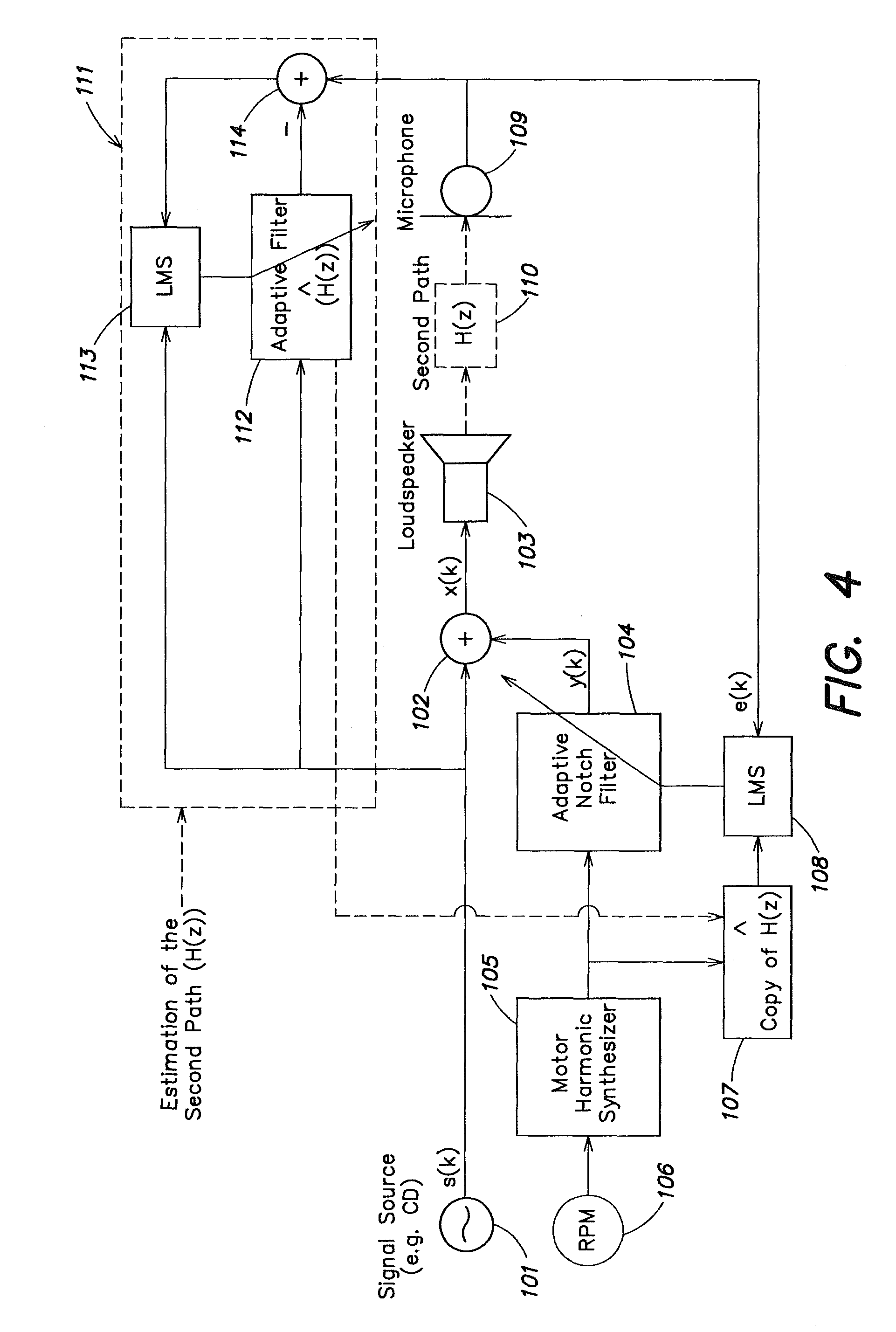Active noise tuning system
a technology of active noise and tuning system, applied in the field of signal processing, can solve the problems of unstable stability, unsuitable general application wideband systems, and active noise control systems that attenuate undeired noise, and achieve the effect of improving noise suppression
- Summary
- Abstract
- Description
- Claims
- Application Information
AI Technical Summary
Problems solved by technology
Method used
Image
Examples
Embodiment Construction
[0050]In FIG. 4, a signal s[k] from a signal source 101 is input to an adder 102. The adder 102 sums the signal s[k] and a signal y[k] that is generated by an adaptive notch filter 104. The resultant sum is output to a loudspeaker 103. The adaptive notch filter 104 receives its input signal from an engine harmonic synthesizer 105, which is controlled by a rotational speed sensor 106.
[0051]The engine harmonic synthesizer 105 generates a noise signal as a function of the rotational speed of the engine. This noise signal is input to a filter 107 having a dynamically adjustable transfer function H[z]. The output of the filter 107 is supplied to a control unit 108 which also receives a signal e[k] from a microphone 109.
[0052]The control unit 108 employs a least mean square (LMS) algorithm and controls the adaptive notch filter 104 so the output of the filter 107 is equal to the signal e[k]. The acoustic path between the loudspeaker 103 and the microphone 109, referred to as the secondary...
PUM
 Login to View More
Login to View More Abstract
Description
Claims
Application Information
 Login to View More
Login to View More - R&D
- Intellectual Property
- Life Sciences
- Materials
- Tech Scout
- Unparalleled Data Quality
- Higher Quality Content
- 60% Fewer Hallucinations
Browse by: Latest US Patents, China's latest patents, Technical Efficacy Thesaurus, Application Domain, Technology Topic, Popular Technical Reports.
© 2025 PatSnap. All rights reserved.Legal|Privacy policy|Modern Slavery Act Transparency Statement|Sitemap|About US| Contact US: help@patsnap.com



